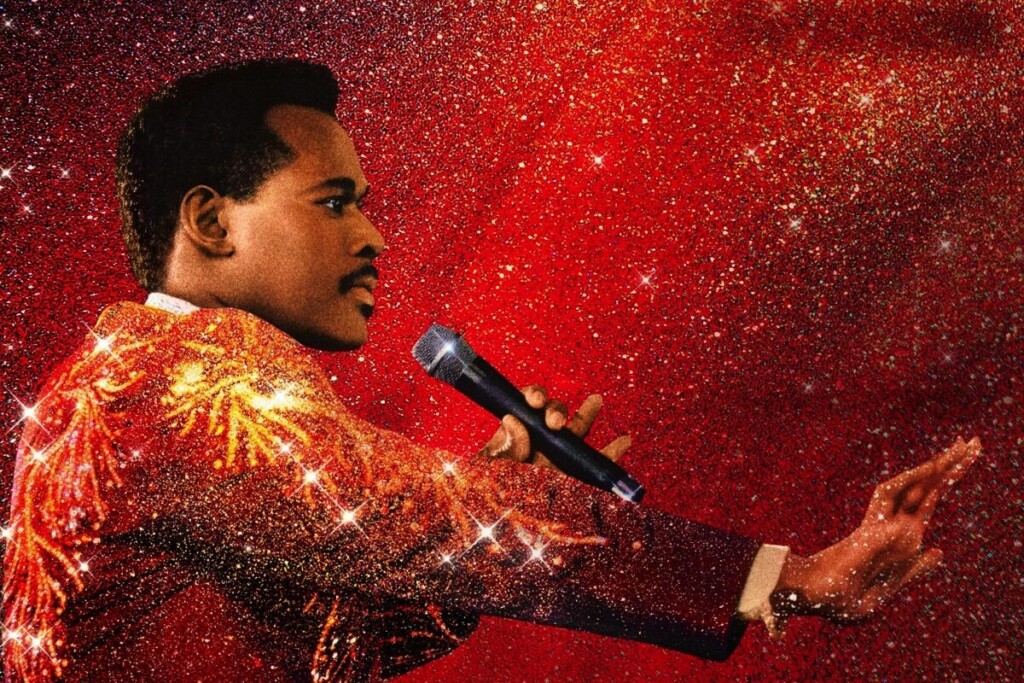Luther Vandross is a musical mastermind who’s often referred to by just one name: Luther.
Twenty years after his passing, CNN airs its critically acclaimed documentary Luther: Never Too Much. The well-produced, hour-and-forty-minute documentary takes the audience on a journey into Vandross’ life with rare and never-before-seen footage of the crooner.
We gain insight into his musical beginnings from the singer’s appearance on Sesame Street with his then-singing group, “Listen My Brother.” From there, we learned about his work as a background singer, vocal arranger, and producer for icons like David Bowie, Bette Midler, and Roberta Flack. Additionally, many discovered Luther’s remarkable career as a commercial jingle writer and singer, including how one particular jingle became the foundation for his signature vocal note.
The documentary also chronicles his chart-climbing career, ornate costumes, grand stage productions, robust knack for perfection, and astute business sense.
Despite the success and numerous accomplishments, Luther became frustrated with his inability to fully break into the mainstream music market. For Black artists, crossing over isn’t just about expanding their audience or reach, it represents the pinnacle of career achievement, alongside winning a Grammy Award. It took Luther nine nominations and the song Here and Now to earn the prestigious accolade under his belt.
On a more somber note, the documentary delves deeply into Luther’s lifelong struggle with his weight. While it seems this is an unspoken topic among his friends, the film suggests that his challenges became more pronounced after a 1986 car accident in L.A. that left a friend of his dead, Luther with broken ribs, and sent him into a food-induced emotional depression.
Interestingly, his struggles with weight form a significant storyline in the documentary. Viewers learn about the pervasive fatphobia surrounding the comparisons between “Big Luther” vs “Little Luther,” which were often treated as comedic but were a genuine sore spot for him. In his eyes, his weight sometimes overshadowed the music.
Luther’s music is timeless! With love as a central theme, his mastery of words and musical arrangement has cemented his place as an impetus of Black music, dominating the Quiet Storm radio format for years. Vandross honed his craft by studying musical legends such as Dionne Warwick, Aretha Franklin, and the Supremes, who were among his favorites.
Luther, a long-life fan of Patti Labelle, founded and presided over the Patti Labelle fan club before his stardom. Unfortunately, LaBelle—one of his closest friends for decades—was slighted and her participation in the film was left on the cutting room floor. While their deep friendship was worth highlighting, Patti’s exclusion appears linked to her public comments about Luther’s much-speculated sexuality.
Still, without Patti’s comments, the heart of Luther Vandross’ story lies in his music. Subsequently, viewers are forced to take an introspective listen to the lyrics of his songs, which reveal a hankering for a love of his own. Vandross’ ability to write the lyrics to some of the most beautiful love songs was his inspiration for love and his desire to manifest the romantic connection he never experienced.
His song Dance with My Father reflects a sense of love tied to his relationship with his father, perhaps the only love he felt in its purest form.
In the documentary, Vandross is quoted as saying Any Love is autobiographical and his favorite song, offering a transparent glimpse into his unspoken feelings.
“Every day as I live. I try to think positive. I pray for someone good to come…any love.”
You hear a man who has accomplished any and everything he’s wanted but never found someone to share or reciprocate the love he willfully wanted to give. The undertone of desperation and longing in the song paints a picture of a man yearning for connection.
“In a lot of ways, you’re a lucky guy. And now all you need is a chance to try any love.”
With these lyrics, you’re reminded that the fundamental nature of humanity includes a longing for companionship. The zeal many secretly harbor or boldly proclaim—to be loved, married, and have a family.
“God has given me everything I asked for except this one thing. To have one person, who loves me,” Flack said Luther once told her. That segment of the film is not only a tearjerker, but another recollection of the love he continually searched for.
This brings into question Never Too Much as the documentary’s title. While it is his most recognizable song, it doesn’t encapsulate the essence of the story being told. Nicknamed “Dr Love” by his adored fans, Luther’s reality was that of a sorrowful man who couldn’t express the love he longed and sought, let alone a love he never found.
“And I was hoping there could one day be. Be a chance for me to. Get the love that‘d been missing. Sometimes love takes a long time. But wait for love and you’re gonna get the chance to love, wait for love,” state the lyrics to Any Love. Luther spent his life waiting for love, and it seems his relationship with emotional eating became a substitute for the love missing in his life.
Luther was a powerhouse vocalist, a gifted songwriter who penned hits for many, and the undisputed king of cover songs. He provided the soundtrack to our Saturday morning cleaning routines and set the standard for excellence in the Black community.
Luther was one of the last greats we had the privilege to witness. The narrative suggests that he was “Black famous,” a household name primarily within the Black community. Did we take him for granted? Perhaps.
But to us, he was always enough—never too much. He was simply Luther.



